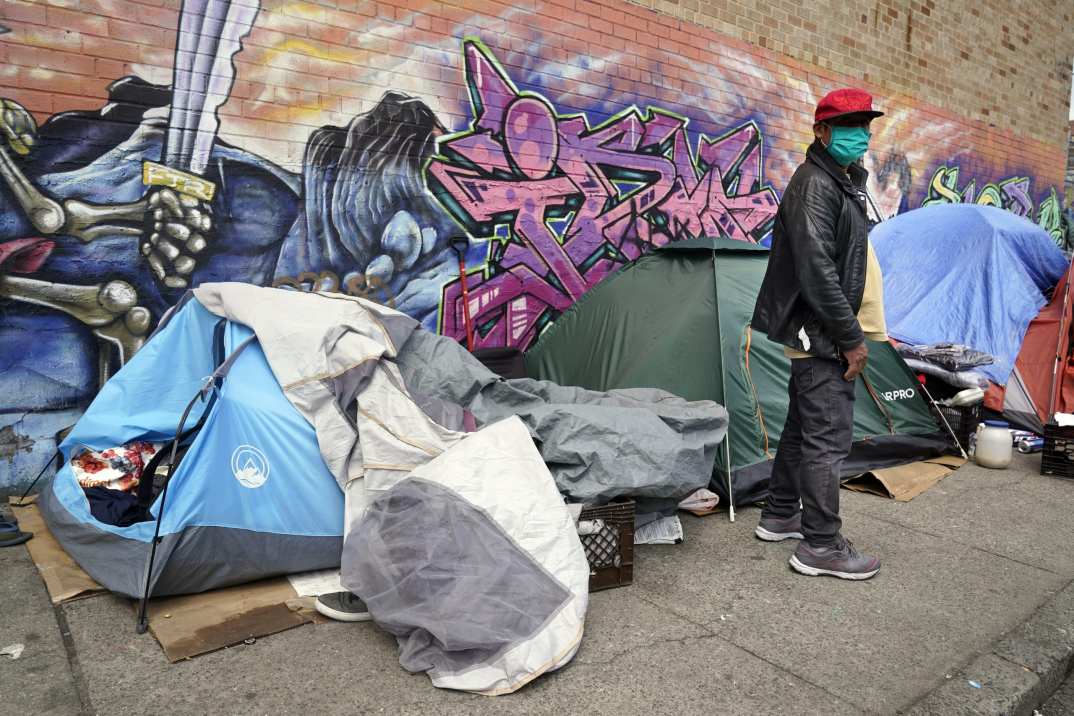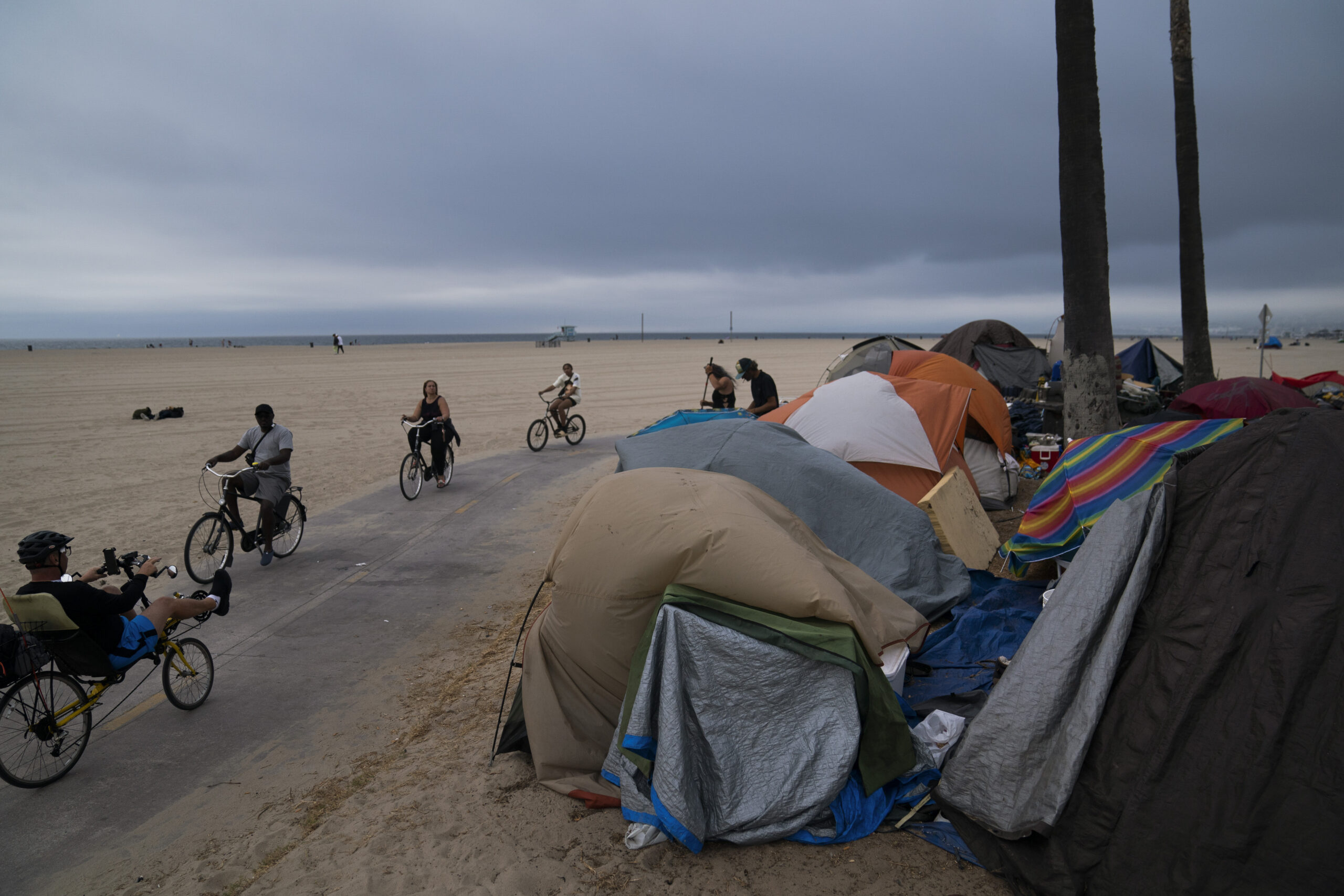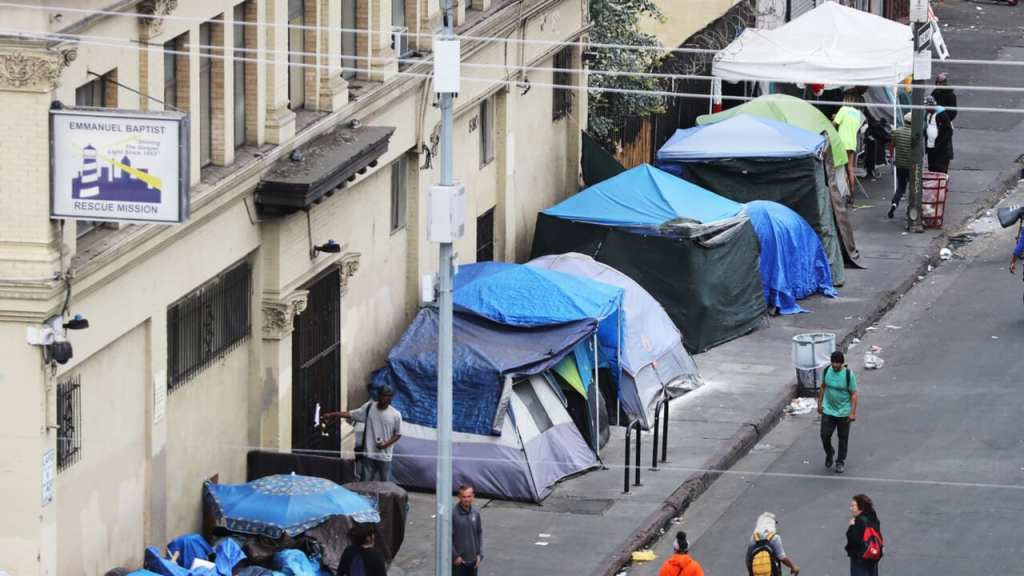A Supreme Court case could mean jail time for Black and brown unhoused populations
Advocates worry Black and brown people experiencing homelessness could be “overpoliced” and the victims of “another tool for mass incarceration.”

The U.S. Supreme Court will soon determine whether cities are permitted to criminally punish members of the unhoused community for setting up camp on public property.
The majority-conservative court granted certiorari to hear oral arguments in the case of Grants Pass v. Johnson. The justices will decide whether cities are engaging in “cruel and unusual punishment” and subsequently violating the Eighth Amendment of the U.S. Constitution by regulating where unhoused people sleep.
Donald Whitehead, executive director for the National Coalition for the Homeless, told theGrio that people experiencing homelessness should not be punished for sleeping in public spaces because sometimes it is the safer option.
“There are certainly issues around safety, how sanitary some of the spaces are, and there’s also the lack of openness for people that are different in some shelters…like members of the LGBTQ community,” Whitehead explained.
John Do, senior staff attorney for the Racial and Economic Justice Program at the American Civil Liberties Union (ACLU), told theGrio that people who are without shelter resort to sleeping on the street due to the risk of sexual abuse, assault, and having their belongings stolen if they were to check into a shelter.
“Shelter opportunities aren’t real opportunities because the shelters are so dangerous or not well kept,” he said. “There is this idea that maybe housing, shelters, drug or mental health services are readily available on demand when that is by and large not true at all.”
Last year, three unhoused individuals filed a class action complaint against the city of Grant Pass, located in Oregon, contending that city ordinances instructing them when and where they can sleep are unconstitutional.

The ordinances forbid people experiencing homelessness from using cardboard boxes, pillows, or blankets while sleeping on public sidewalks, streets, or alleyways at any time. The ordinances also forbid the unhoused from sleeping in their cars in a parking lot for two or more hours between midnight and 6 a.m.
“The city fined and could’ve potentially jailed people for using a blanket to protect themselves from the elements when they were forced to be outside because there weren’t any opportunities for them to be inside,” said Do.
As a result, the district court issued a permanent injunction that prohibited the city from enforcing some ordinances during certain times of the day and at certain locations in the city.
The City of Grant Pass appealed the injunction; however, the U.S. Court of Appeals for the Ninth Circuit affirmed the lower court’s decision, making it illegal for the city to enforce camping restrictions on those without shelter.
The city then petitioned the Supreme Court to hear the case, which, depending on how the court rules, could impact marginalized communities in nine states: Oregon, Washington, Montana, Nevada, Idaho, Alaska, Arizona, California, and Hawaii.
Whitehead of the National Coalition for the Homeless said that although white men are the largest demographic who experience homelessness, Black and brown people are disproportionately impacted.

“African Americans make up 13% of the general population and makeup around 40% of the homeless population,” he said.
Do of the ACLU said that if the Supreme Court ruled in favor of Grants Pass, Black and brown people would be “overpoliced,” and the verdict would be used as “another tool for mass incarceration.”
He added that fining and jailing the homeless population does not solve the issue.
“It’s inherently ineffective to try to address a housing problem with our legal system,” he said. “Police officers are not social workers.”
Whitehead said that a ruling against the unhoused petitioners would mean that the justices believe “criminalization is a solution to homelessness.”
“If you don’t have enough shelter in the community and people are forced to be outside, then you should not be criminalizing them because they don’t have a choice,” he said.
U.S. Rep. Sydney Kamlager-Dove, D-Calif., told theGrio in a statement that “instead of continuing a history of criminalizing our most vulnerable people, the elderly, people of color, etc., we should be advocating for fair, equitable and affordable housing policies that give people better choices.”
Recommended Stories
Never miss a beat: Get our daily stories straight to your inbox with theGrio’s newsletter.








